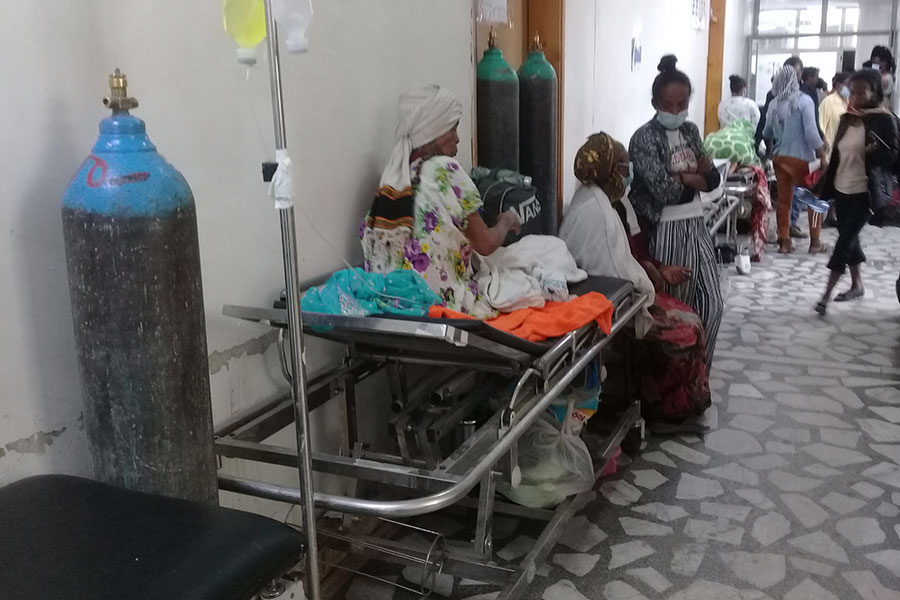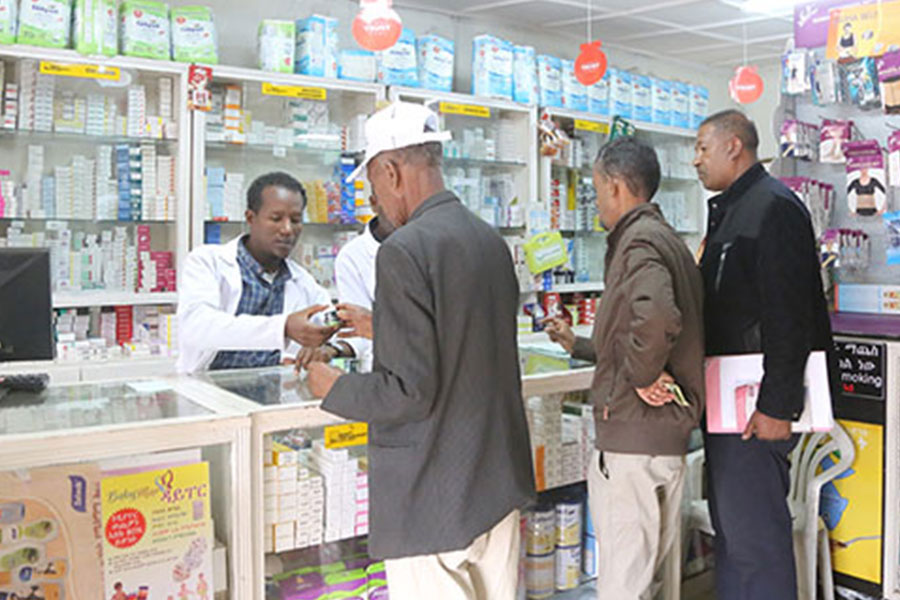
Mar 20 , 2021
By BAMLAK FIKADU ( FORTUNE STAFF WRITER
)
A private hospital in Dire Dawa is threatened with a sudden closure due to a dispute over tax arrears claimed by the federal government.
The management of Bilal General Hospital says it is only days away from closing its doors and terminating services, unable to pay close to nine million Birr in income tax authorities claim remains unpaid. The amount includes penalties and interest on the principal tax, according to the Dire Dawa Branch Office of the Revenues & Customs Authority.
Opened in 2004, Bilal is one of the 15 health centres and 36 health posts operating in the eastern city. For a population of over 400,000, Dire Dawa has only one referral hospital and two general hospitals.
"The Hospital is near shut down due to the absence of uniform tax collection systems between the federal government and the City Branch Office," Nejah Abdulsemed, who co-founded the Hospital with her husband, Abdulselam Hussien (MD), told Fortune. "We've appealed to the authorities to reconsider their decision, but the Branch Office rejected our appeal even though Bilal Hospital has previously been awarded for being a dependable taxpayer."
The impasse with tax authorities came after they discovered in an audit that the Hospital failed to deduct 30pc in withholding tax from doctors and medical staff working on a part-time basis, instead it was transferring two percent over three years.
A law passed in 2013 obliges employers to deduct two percent from gross pay if part-time or contracted staff provided a tax identification number (TIN). Failure to provide a TIN subjects service providers to a 30pc deduction. However, the Hospital was told in December 2020 that it had to pay the full 30pc withholding tax for all its part-time employees for a two-year audit period beginning in 2017, whether or not the employees had provided tax identification numbers.
This goes against the federal tax proclamation passed in 2016, which does not differentiate between part-time and full-time employment, according to a tax law expert who wishes to remain anonymous.
Appeals made before the office of the City Mayor, the Health Bureau, the Revenues Office and the Diaspora Agency have produced no result, according to Nejah.
The Hospital's management had written a letter to the Branch Office in April 2019, inquiring if there were any changes in policy or directives, but there were no responses to the inquiries. After the rejection of the appeals, the Hospital filed a complaint to the head office of the Federal Revenues & Customs Authority and is awaiting a response.
Authorities in the Branch Office were not available for comment, and federal tax officials declined to comment on a pending case.
The Hospital plans on closing its doors to new patients at the end of this month, according to Nejah, though it will keep operating until all inpatients are discharged, she told Fortune.
The Hospital employs 165 people, including 10 general medical practitioners and six specialists. Its labour union has filed a complaint before the Dire Dawa City Administration Bureau of Labour & Social Affairs, although they have yet to receive a response.
It is a turn of events Nejah and her husband were not prepared for when they returned to Ethiopia from the United States to invest 25 million Br in opening the Hospital, which has 50 beds and two surgical rooms.
"I don't know how I can motivate the diaspora community to get back and invest in their home country while I am facing such difficult issues," said Nejah, who is also the chairperson of the Dire Dawa Diaspora Agency. "I'm very saddened by the prospect of people losing their jobs and worried about the 500 family members who depend on them."
A public relations officer at the Dire Dawa Health Bureau, Sintayehu Debesa, shares Nejah's feeling of loss. The town she serves has a ratio of one doctor to 5,000 and one nurse to 1,000 patients.
"The contributions Bilal General Hospital makes is significant," said Sintayehu.
For Netsuh Workafes, a public health officer with over a decade of experience, letting a hospital shut down during the COVID-19 pandemic is alarming.
PUBLISHED ON
Mar 20,2021 [ VOL
21 , NO
1090]

Fortune News | Oct 07,2023

Radar | Dec 04,2022

Radar | Jun 29,2019

Fortune News | Sep 18,2022

Viewpoints | Sep 10,2023

Dec 22 , 2024 . By TIZITA SHEWAFERAW
Charged with transforming colossal state-owned enterprises into modern and competitiv...

Aug 18 , 2024 . By AKSAH ITALO
Although predictable Yonas Zerihun's job in the ride-hailing service is not immune to...

Jul 28 , 2024 . By TIZITA SHEWAFERAW
Unhabitual, perhaps too many, Samuel Gebreyohannes, 38, used to occasionally enjoy a couple of beers at breakfast. However, he recently swit...

Jul 13 , 2024 . By AKSAH ITALO
Investors who rely on tractors, trucks, and field vehicles for commuting, transporting commodities, and f...

Jul 12 , 2025
Political leaders and their policy advisors often promise great leaps forward, yet th...

Jul 5 , 2025
Six years ago, Ethiopia was the darling of international liberal commentators. A year...

Jun 28 , 2025
Meseret Damtie, the assertive auditor general, has never been shy about naming names...

Jun 21 , 2025
A well-worn adage says, “Budget is not destiny, but it is direction.” Examining t...